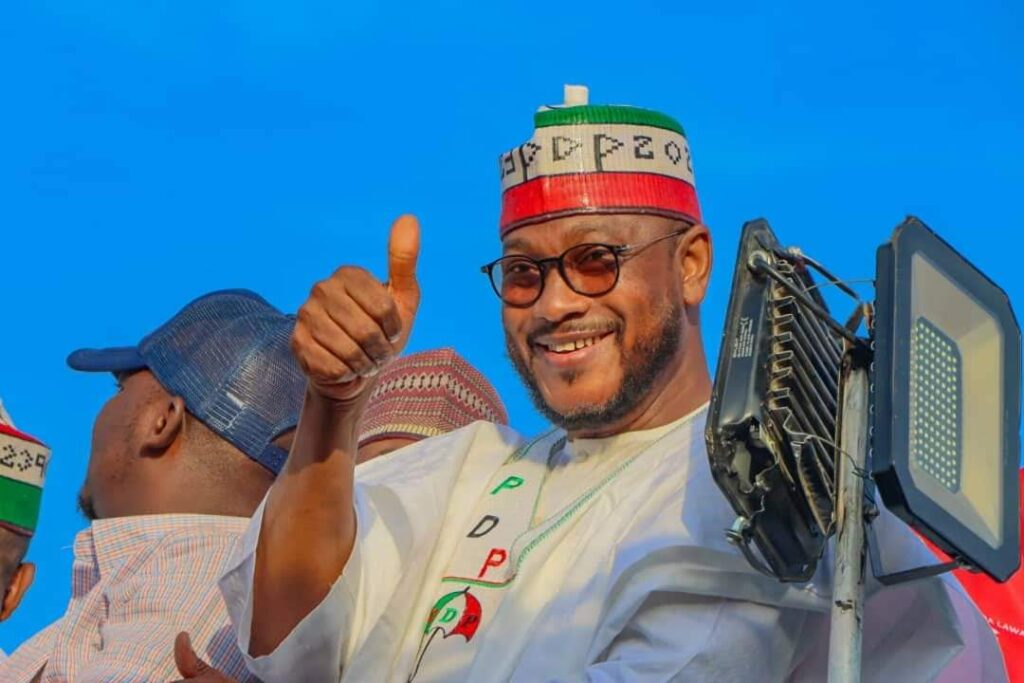August 20 2025
The Athena Election Observatory (AEO) notes with concern the scale of security deployments reportedly associated with the forthcoming supplementary election in Kaura Namoda North constituency, Zamfara State, scheduled for Thursday, August 21, 2025.
According to unverified reports available to AEO, multiple Mobile Police (MOPOL) units, Special Intelligence Bureau (SIB) personnel from outside the state, including from Gombe, Kaduna, Force Headquarters Abuja, and Sokoto, have been deployed to just five polling units with 3,265 collected PVCs.
The scale and breadth of this deployment, coupled with media allegations of military presence at polling units during last week’s election, suggest a militarised election climate that is incompatible with a free and fair democratic exercise. This level of force presence is excessive for a localised re-run in five polling units and risks voter suppression, fear, and the erosion of electoral legitimacy.
Context of the Re-run
The Independent National Electoral Commission (INEC) declared the August 17 by-election inconclusive due to the margin of lead (1,662 votes) being lower than the number of collected PVCs (3,265) in the affected areas. The re-run is thus limited to a small number of voters in:
- Ward Sakajiki – PU Alko/Shiyar Kudu, Shiyar Nufawa/Kofar MD Nuhu;
- Kyambarawa Ward – PU Shiyar Magaji/Kofar Hamza, Tukasu/Sabuwar Kasuwa, Kofar Fada/Shiyar Fada.
Principles of Proportionality and Voter Confidence
While the provision of security during elections is both necessary and legally supported, the extent and character of security deployments must reflect the scale of the electoral exercise, the specific threats identified, and the need to preserve voter confidence.
Deployments that appear excessive in relation to the number of polling units or voters involved may unintentionally undermine public trust, discourage turnout, and create perceptions of state overreach, regardless of the intentions behind such actions.
The Role of Security Agencies in a Democracy
The AEO respectfully reminds all stakeholders, including law enforcement and the electoral management body, of the principles—both domestic and international—that govern the deployment of security forces during elections.
Clause 104 of INEC’s 2022 Guidelines for the Conduct of Elections outlines the lawful roles of security agents as follows:
- To provide security at polling units and collation centres and ensure that counting and declaration of results occur without disturbance;
- To prevent violence or any activity likely to disrupt the election;
- To comply strictly with lawful directives issued by or under the authority of INEC;
- To ensure the safety of all election personnel and materials, including escorting election materials and officials across all levels;
- To make arrests only on the instruction of the Presiding Officer or authorised INEC officials;
- To stand at the end of the queue at the close of polls, and to escort election results and materials to designated collation and submission points.
These guidelines reinforce the expectation that law enforcement should operate within a framework of neutrality, restraint, and proportionality, and always in support of electoral credibility, not as its substitute.
Protecting Electoral Legitimacy
The re-run in Kaura Namoda North is an opportunity to demonstrate electoral restraint, professionalism, and transparency. With only a handful of polling units involved, a scaled and proportionate security posture would enhance the credibility of the process while allowing voters to exercise their franchise free from real or perceived pressure.
AEO Recommendations
- De-escalate and Rationalise Security Deployment
INEC, the Nigeria Police Force, and other agencies must ensure that security presence is proportional, localised, and community-sensitive to avoid intimidating voters. - Ensure Command Neutrality and Transparency
The Police and Military should publicly disclose all external deployments with rationale, and their activities must be under strict civilian oversight during the election period. - Protect Electoral Integrity, Not Political Interests
Elections must remain a civil democratic process, not a theatre for force projection. The overbearing presence of security agencies undermines confidence in the neutrality of the state and the independence of INEC. - Allow Voters to Decide Without Coercion
The people of Kaura Namoda North must be able to cast their votes free of fear or intimidation. Democracy functions best when citizens—not uniforms—determine the outcome.
The AEO also urges:
- INEC to continue to uphold its responsibility to ensure a conducive environment for all voters;
- Security agencies to adopt a posture of facilitation rather than dominance;
- Political actors to refrain from rhetoric or actions that could inflame tensions or delegitimise outcomes.
Conclusion
Elections, no matter how limited in scale, are expressions of sovereign will. They must therefore be conducted under conditions that promote trust, transparency, and freedom from fear.
The Athena Election Observatory will continue to monitor developments and issue a post-election brief following the conclusion of the supplementary poll.
Sarah Eke
Program Lead
Athena Election Observatory (AEO)
Evidence. Integrity. Democracy.

